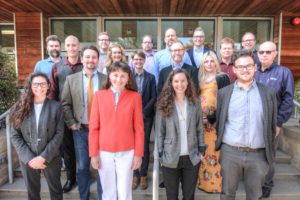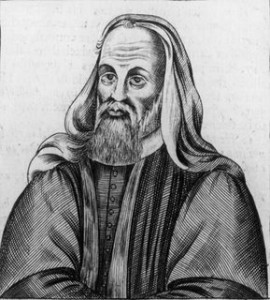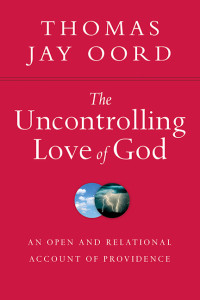Explanations in Psychology & Theology
I spent the last few weeks at Fuller Theological Seminary considering issues in psychology and theology. Most of the time, psychologists and cognitive scientists introduced our little group of scholars to the latest research and theories in their fields.
The conversations were rich and varied. I loved it! I thank Bringing Theology to Mind workshop organizers and administrators. I also made some great friendships!

It quickly became evident to me, however, that our views about God matter. Our theological perspectives shape how we evaluate claims in psychological research. In other words, how one thinks about God and creation greatly influences how one assesses work in psychology.
Jim the Recovering Alcoholic
Take as an example the phenomenon of a recovering alcoholic. Let’s call our example person “Jim.” How do we best understand his experiences?
Suppose Jim once drank heavily. Through a series of experiences and decisions, he decided to enroll in Alcoholics Anonymous. By following the program’s steps, he’s been free of alcohol addiction for ten years.
How might we account for Jim’s recovery and developing health?
God Controlled Jim?
Some theologies say God alone is responsible for Jim’s recovery. These theologies admit it might seem Jim’s actions, the group’s accountability, or the program’s steps played causal roles in overcoming his addiction. But what seems the case isn’t… at least from an ultimate perspective.
The “God Controlled Jim” view says only God is responsible for good in the world. Jim can only do evil. Nothing in creation is capable of good either. Only God should be given credit for good, because Jim and all other creaturely actors and factors are incapable of good.
I reject this view. It not only denies Jim is morally responsible for his good actions. It also cuts against the possibility psychology could rightly identify creaturely causes necessary for good. At least in terms of explaining good in the world, this view says psychology provides no ultimate explanations.
Of course, one might say, “God used Jim and other factors to bring about Jim’s recovery.” So Jim played some role. But if “used” means Jim and others had no causal power of their own to cooperate or resist God, “used” amounts to God singlehandedly determining the outcome. This is theological determinism, to use a technical phrase. God controls others… at least when it comes to their doing good.
For reasons I have explained in various books and blogs, I don’t think a God who controls or is even capable of control is a God who loves consistently.
Jim Did It on His Own?
Is the alternative to “God Controlled Jim” the idea “Jim Did It on his Own?” Did Jim (perhaps with the help of other creaturely actors or factors) get healthy without God?
The way some psychologists talk, one might think the answer to these questions is “yes.”
When speaking from the perspective of their discipline, most psychologists do not appeal to divine action. In other words, psychologists typically don’t talk about what God might be doing when constructing their theories or explaining what happens in the world.
Christian psychologists sometimes appeal to God, of course. But they do so from their personal perspective, not from their discipline’s perspective, strictly speaking. Psychology assumes methodological naturalism. That is, the discipline of psychology does not appeal to what God may have done or be doing. It appeals to natural causes alone.
Deism and Pelagianism
A couple of theological traditions seem to fit the idea creatures – not God – brought about Jim’s recovery. Deism, for instance, says God created the world but no longer engages it. From a deistic view, whatever good occurs is directly done by creatures, not God.

Another tradition, often called “Pelagianism,” says creatures act first to secure what is good. God will react to creaturely actions. But if creatures don’t take the initiative, any recovery, transformation, and salvation aren’t possible. Credit for good goes primarily to creatures.
Both of these theologies explain Jim’s recovered health primarily if not exclusively in terms of what he and others did. What God may be doing is a secondary consideration. God may have initially created a world in which recovery is possible or may cheer Jim on in the present. But if it’s to be, it’s up to me (or Jim).
I reject the “Jim Did It on His Own” view. I appreciate that it avoids problems inherent in the “God Controlled Jim” view. And I like that it claims creatures play a necessary role in doing good, in general, and alcohol addiction recovery, in particular.
But I don’t think the “Jim Did It on His Own” view fits the way the world works. And I think this explanation in psychology and theology leads easily to two sins.
The first sin is pride (in the negative sense of the word). Those who do good can easily think of themselves too highly. “I did it my way, and my way is the right way!” Pride comes before a fall.
Those who don’t find recovery are easily led to commit a second sin: despair. If it’s primarily up to me and I fail, there’s little hope “I’m a failure.” Those who know themselves capable of great personal and social destruction easily despair if good rests primarily on their own shoulders. Addicts know this especially well!
God Acted; Jim Responded
I find a third theological view most attractive. It says God acts first in each moment to empower, call, and inspire Jim (and others) to respond and enjoy health. God is the first and necessary cause for whatever is good. Without God acting first, nothing good is possible.
But it’s not all up to God. Jim can cooperate with God’s causal activity or choose not to do so. When Jim (and others) cooperates with God’s work aimed at health and wholeness, he enjoys the health that comes from breaking his addiction. When he doesn’t, God is not to blame.
This view gives primary credit to the active and empowering love of God. It denies that God controls Jim. And it denies Jim can recover entirely on his own or entirely through other creaturely actors and factors.
Some theologians call this view “prevenient grace.” It says God lovingly acts first, in each moment, for the good of creation. This initial divine action both calls and enables creatures to respond freely, given the constraints of the actors and situation at hand. A person’s moral responsibility rests on how they respond to God’s gifts. This is also a key feature in my “essential kenosis” theology.
Psychology and Theology
The “God Acted; Jim Responded” view entails a major advantage often overlooked in science and religion explorations. It denies that either psychology or theology can tell us the full truth of Jim’s alcohol recovery. A robust explanation requires both disciplines. If Jim’s recovery is not about God’s action alone nor his action alone, both disciplines contribute to an adequate explanation of Jim’s health.
As I see it, this “Both/And” approach is true of science and religion explorations more broadly. If God never controls creatures or creation but always exerts causal influence on everyone and everything, we need both science and theology to make good sense of life.
Psychology and theology!
If God cannot control creatures or creation but always exerts influence on everyone and everything, we need both science and theology to make sense of life. Share on X


Comments
Nicely stated Tom!
Great article. As a family therapist I engage with clients in their own language about their relationship with God, much like I would ask therapeutic questions about relationships they have with other people. I don’t have to bring my expertise to the conversation, other that my expertise of asking therapeutic questions. The clients have effective resources that can be trusted… or a divine prevenient grace that can be trusted.
I love the integration! Of course, most psychologists do not appeal to divine action because the actions of the divine are not seen, heard, or measured. In other words, psychologists typically don’t talk about what God might be doing when constructing their theories or explaining what happens in the world because the variable of God is not able to be known.
One could make a claim that God “empowered, called, and inspired” Jim to get well, but it is simply a faith claim. The atheist therapist could say, “Wow, that is a lofty claim you make. Can you tell me how exactly God did empower, call, and inspire Jim? Could empowering, calling, and inspiring Jim be measured in any demonstrable way? If not, then how could you be sure that is what a God that you can’t see definitively did? Could Jim have gotten well if God just empowered and did not call and inspire? Are they really three separate variables that are totally different actions God does in each moment?
Having worked as a theologically trained licensed therapist in a long-term faith-based (Christian) addiction recovery facility for the better part of a decade, I’ve seen countless examples of the “It’s all God” vs. “It’s all me” polarities in the perspectives of people in recovery (to say nothing of people’s oscillations between the two). I can attest that an integrated (relational) perspective has tended to prove more effective in my clients’ recovery there than the dis-integrated perspective of either polarity (or reactive pendulum swings between the two). As a provider of DBT (Dialectical Behavior Therapy) services in this facility in particular, I’ve often framed the healthier “middle path” here as a dialectical integration of divine and human agency. I also recall citing some research in grad school suggesting that people experience more well-being when they believe the locus of control in their experience rests in both themselves and God over the course of their lives, rather than in one or the other alone (Wong-McDonald & Gorsuch, 2004).
An excellent conclusion that avoids the prevalent dualism of “either/or” and reveals a “both/and” approach that was fundamental to the work of Pierre Teilhard de Chardin. In an essay on Teilhard,Edward Vacek, SJ notes: “We must exercise our own creativity if God is to achieve what God intends. Without our effort, God not only will not but cannot bring about “thy kingdom come.” This is a crucial and, of course, controversial point. Whether one says with those who propose a kenotic Christology that God has chosen to humble God’s own self and not intervene in the world, or whether one says in line with the direction of Teilhard’s thought that creaturely activity can be done only by creatures and not by God independently of those creatures, the moral upshot is that human activity is now necessary for the building of the world…Our unwillingness to cooperate with God is the meaning of sin…To be saved is to love God, and we cannot love God unwillingly. Our willing cooperation is our salvation.” (An Evolving Christian Morality: Eppur si muove, in “From Teilhard to Omega,” Ed Ilia Delio, 2014 New York, Orbis Books) In practical terms (and I write as a recovering alcoholic) the empowering agency is Grace.
In “Addiction and Grace”, (1988, Harper & Row) the late Dr. Gerald May develops precisely your line of thinking, Tom, insisting that “Although addiction is natural, it severely impedes human freedom…and makes us slaves to our compulsions. Grace, the freely flowing power of divine love in human life, is the only hope for true freedom from this enslavement.”
Keep ’em coming, Tom!
Tom, I appreciate how you have presented these mind-bending complexities. I suppose you are addressing more than mind bending, but heart bending, will bending, character bending–or forming issues. My follow up question is if a “person’s moral responsibility rests on how they respond to God’s gifts,” how does one increase their awareness and capacity to respond to God’s gifts? Thanks for your great thoughts! Pam
Thanks for your kind words and question, Pam! To your question, I’d say there are various practices we can do to increase our awareness and capacity to respond to God’s gifts. These include spiritual practices like prayer, worship, meditation, etc. They also include education in various forms. I think the various practices of self-regulation can be important. Etc. But I don’t think we can ever attain perfect awareness or guaranteed continual positive response. In other words, we’re always free to some degree on how we might respond to God’s calls in each moment.